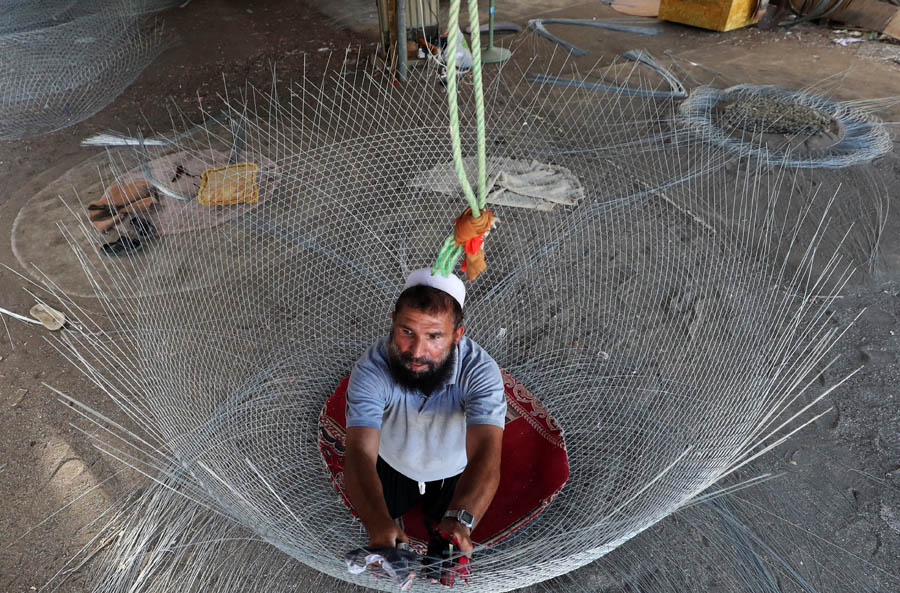Afghans, Pakistanis weave a livelihood on Emirati coast


KALBA, United Arab Emirates - Far from his home in Afghanistan, Nour rises each morning before the sun's rays touch the coastal Emirati town of Kalba for a new day weaving fishing cages.
The 50-year-old takes his place alongside fellow laborers, praying toward the holy city of Mecca. Then he sips on his first cup of tea, a moment of serenity before work begins.
Kalba is located on the eastern coast of the United Arab Emirates. Unlike the capital Abu Dhabi, which faces the Arab Gulf states, Kalba is perched on the Gulf of Oman, looking out toward Pakistan and India beyond.
The town has become a hub for the craft of weaving fishing cages, attracting dozens of Afghans and Pakistanis seeking to earn a living.
The fishing cage, or wire net, used in the Gulf of Oman is shaped like an igloo, with an oval-shaped inlet.
The popular Shaeeri and Zoubedi fish can swim in through the narrowing passage, but cannot find their way out. "Each cage takes about seven or eight hours of nonstop work," Nour said.
The Afghan father of three is a long way from his family and his landlocked hometown of Khost, located near the Pakistan border.
"I've been working here for nine years," he said.
Nour said he earns 25 dirhams (about $7) per fishing net, of which he makes one or two each day.
Despite the long tedious hours, sometimes oppressive heat, and relatively low financial returns, Nour stays.
"I'm happy because I can make money to send to my family at the end of each month," he said.
He is not alone.
No days off
For decades, the UAE has attracted hundreds of thousands of Asian people willing to do manual labor that the wealthy local population is not.
The industrial zone in Kalba is home to about 50 small enterprises, Emirati-owned and employing about a dozen weavers each.
The employers provide shared living quarters for the men, food - and tea.
The weavers, aged 18 to 60, work in their own open spaces with thatched roofs to shield them from the sun.
There are no days off. Instead, every two years, workers are given a ticket home for a six-month unpaid break.
Akbar, a 55-year-old father, said he arrived in Kalba three decades ago from his native city of Peshawar in Pakistan. As he nears completion of his trap, Akbar said he plans to stay a few more years before returning to his country.
"It is true that my hair is going gray, but I still feel like a young man," he said.
Suddenly, Akbar stood up, grabbing a blue rope tied to the ceiling. He took two steps back and leapt over the meter-high cage - making a perfect landing in the unfinished trap. "It's been 30 years and I still do this jump every day," he grinned, to the applause of nearby workers.
Agence France-presse
































